The Marvel Multiverse RPG does one thing better than any other superhero game
Opinion | It's an Avengers-level threat
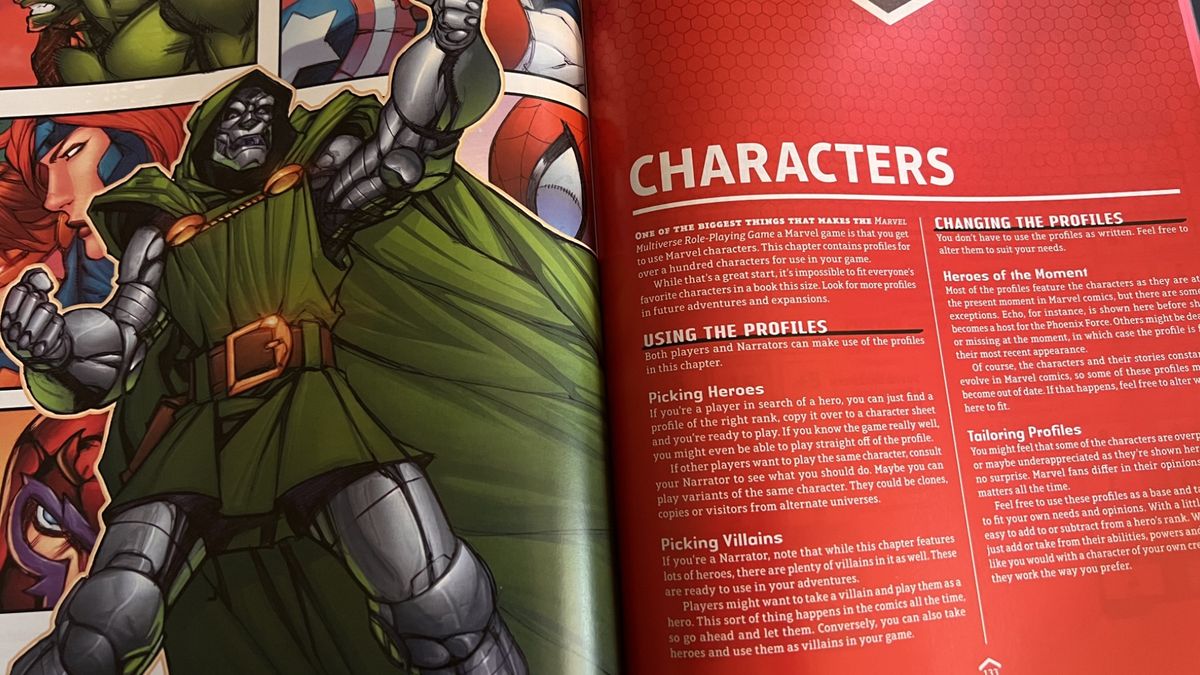
When we first learned of a role-playing game based on Marvel’s storied universe, there was apprehension. Marvel wasn't the first comic company that'd attempted to take its storytelling from page to RPG. But, that transition hasn’t always been smooth. Marvel’s problem is that there’s just too much continuity and complex lore to adapt into a single rulebook that’s capable of capturing the essence of the fictional landscape.
I feel that those feelings of unease were certainly misguided, because as we mention in our Marvel Multiverse Role-Playing Game review, it delivered. Players got their first taste of the strengths of the title when the initial Playtest Rulebook was released. Although it was trimmed down, it touched on the core beats that would go on to give the Marvel RPG its identity. And now that the main Rulebook has hit shelves (not to mention with X-Men and Cataclysm Of Kang expansions looming on the horizon), it’s time to dig into what sets the character development apart from the super competition.
What do we want from a super rpg?
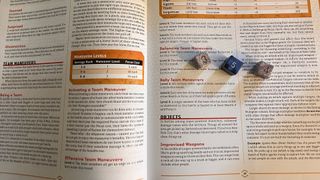
As with all of the best tabletop RPGs, the thing we all want to do when we pick up a superhero game is create our own character, give them an engaging backstory, and then saddle them with bizarre personality traits and even weirder powers. Well, maybe that’s just me. But, superhero RPGs give the player the opportunity to create their own comic book narrative, with the characters they’d love to see on the page.
However, the problem with that is twofold. Firstly, an RPG has to have a robust character creation system that allows players to embrace all their desires. Secondly, most comic book fans are going to want to interact with familiar universes, inserting their characters into well-known teams and locations, so that those narratives act as an extension of the continuity they’ve read for years.
It has always been the people behind the masks that truly make them special. The Marvel Multiverse Role-Playing Game gives players the tools to create their own unique characters
CJ Cervantes, project lead and producer
There’s no shortage of great superhero RPGs like Mutants & Masters, Masks: A New Generation, and Anyone Can Wear A Mask. Plus, the distinguished competition, or rather, DC Comics, crafted their own RPG with DC Adventures. However, when looking at the depth of the Marvel RPGs’ character creation system and the opportunities it provides to players, I'd argue that it very much outranks any predecessors. Combined with a rich and familiar universe of stories, the most exciting element of playing with this recent rulebook is that it invites every reader to own their unique space in the Marvel Multiverse.
I need a hero
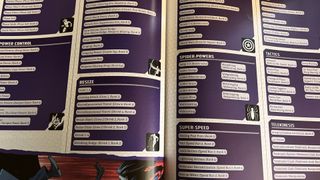
The release of Demiplane’s Marvel Multiverse RPG Nexus, which provides a platform to help with the character creation process, is a perfect indication of the focus that is being put on the creative suite in the game. Indeed, while players might want to take on well-known names, it’s far more satisfying to forge your own.
“There are countless characters in the Marvel Universe," CJ Cervantes, project lead and producer, says. "But it has always been the people behind the masks that truly make them special. The Marvel Multiverse Role-Playing Game gives players the tools to create their own unique characters so they can be the hero (or villain) of their very own Marvel story.”
Sign up to the 12DOVE Newsletter
Weekly digests, tales from the communities you love, and more
"CJ has it absolutely right," Matt Forbeck, lead designer and writer, agrees. "I’ll also add that we didn’t set out to make a generic superhero game but specifically a Marvel game. You can make all sorts of characters in the game, but they’ll definitely have a Marvel bent."
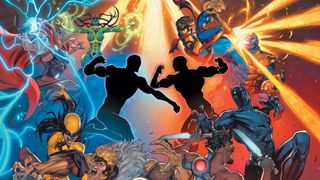
The Rulebook does feature an exceptional variety of pre-made characters that players can jump straight into an adventure with. That extends from classic figures like Captain America and America Chavez, to slightly more obscure entries in the Marvel encyclopaedia like Night Nurse and Red Wolf. But, the book also provides character sheets for standard entities like Hydra Henchmen and A.I.M Agents, who players might want to flesh out further. It’s a useful addition to the system for newcomers, and sets the standard for what players can aim for when creating their own characters.
The RPG boasts a simplified yet detailed toolset and multi-stage process. Firstly, the player has to choose their all important codename, real name, rank, and ability scores. Those scores are vital in giving the character a basic array of talents, from agility, to resilience and logic.
Next comes the biography, where players can set out their origin story, occupation and any additional details of note. The origin and occupation are both vital in shaping powers and abilities. Perhaps the new entity is a Mutant, or Inhuman. Maybe they’ve joined A.I.M. or have spent their life as a circus magician.
The third stage of the process features traits and tags. A trait shapes the actions of a character and has a mechanical effect on gameplay. They might be an inventor, or brutally honest. They might not get along with others, or are inspirational public speakers. The tags, on the other hand, are more narrative-based and don’t have specific mechanics associated with them. A character could be an ex-con or cursed. They might already be deceased, or are being hunted.
The final stage is the powers and weapons section. This is pretty self-explanatory, but the Rulebook has such a range of options that it’s almost overwhelming. Cleverly, these abilities are influenced by the previous player choices. It would seem out of place for a S.H.I.E.L.D. Agent to boast the powers of an Eternal, for example.
We didn’t set out to make a generic superhero game but specifically a Marvel game
Matt Forbeck, lead designer and writer
It’s very obvious that in the creation of this system no (Infinity) stone has been left unturned. Although there are some areas that could be further refined in future editions, nothing should be taken away from the extraordinary work that has gone into crafting a superhero creation suite that, in my opinion, stands head and shoulder above the competition.
With that in mind, the Marvel RPG stands out as it allows gamers to play in their iconic sandbox in a succinctly personal way. What comic fan wouldn’t want that?
For something a little more classic, check out the best Dungeons and Dragons books.
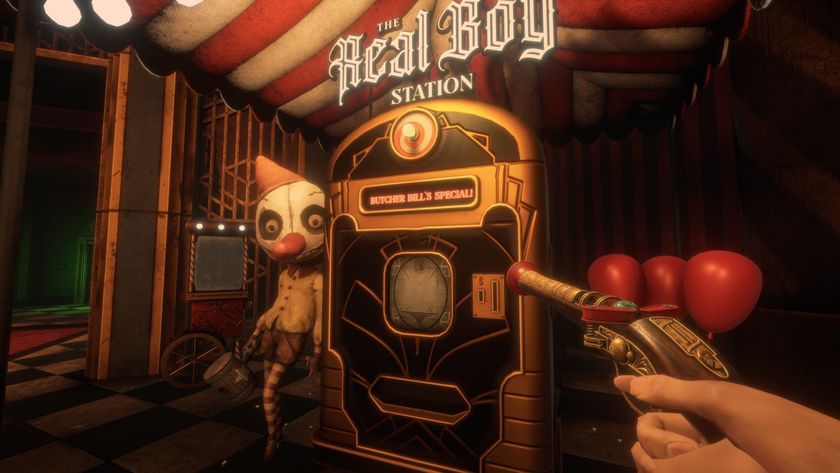
OG BioShock director recommends one very BioShock-y Steam Next Fest game that already has 500 "very positive" reviews
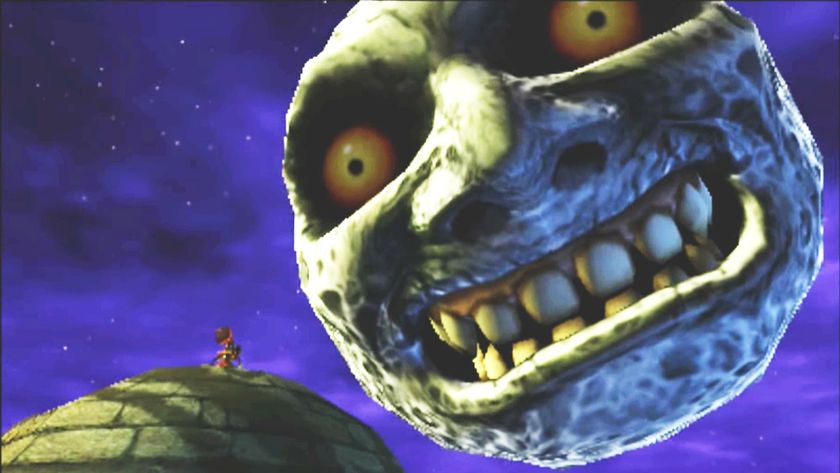
Despite Zelda: Majora's Mask basically being a horror game, one of its key devs didn't think its creepiest features were scary at all: "People on the team were like 'whoa!'"
Most Popular





